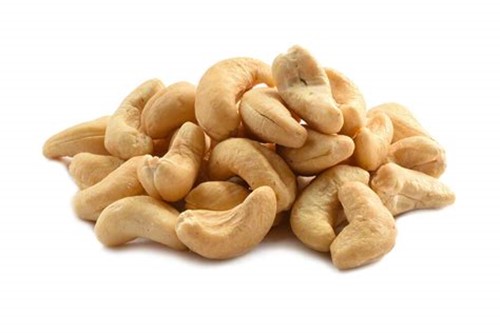
Scientific Name: Anacardium occidentale
Higher Classification: Anacardium
Rank Name: Species
Cashew
Published Date: 6/17/2023 6:01:33 AM
What is Cashew?
Cashews contain heart-healthy monounsaturated fats, including oleic and palmitoleic acids (Nutrition and You, 2012). These are essential fatty acids that have been associated with lower levels of unhealthy LDL cholesterol and higher levels of healthy HDL cholesterol. As a result, the consumption of monounsaturated fats in cashews is associated with a decreased risk of cardiovascular disease. Cashews are an excellent vegetarian source of copper, providing more of the mineral than most other non-meat sources. Cashews provide an excellent source of protein. Cashews Are an Excellent Source of Antioxidants.
What are its benefits:
- Cashews are low in sugar and rich in fiber, heart-healthy fats, and plant protein. They’re also a good source of copper, magnesium, and manganese — nutrients important for energy production, brain health, immunity, and bone health.
- Cashews are rich in carotenoids and polyphenols, two categories of antioxidants that may help reduce inflammation and offer protection from disease. However, more cashew-specific research is needed.
- Cashews appear to provide fewer calories than once thought. Their rich fiber and protein content can help reduce hunger and increase feeling full. Put together, all of these factors may help you lose excess weight.
- Nut-rich diets are consistently shown to be beneficial to heart health. Cashews appear to offer some benefits to lower blood pressure, triglycerides, and cholesterol. However, more studies are needed before strong conclusions can be made.
- Cashews are low in sugar and rich in fiber — two factors which, when combined, may help reduce blood sugar levels and protect against the development of type 2 diabetes. However, more research is needed to confirm these benefits.
- Cashews are a versatile addition to any diet. Eat them on their own, add them to your favorite dishes, or use them to make cashew-based sauces and desserts. Choose dry roasted or raw unsalted varieties whenever possible.
- Cashews are generally considered safe. For most benefits, consider purchasing raw, unsalted cashews and soaking them before eating, whenever possible. Dry roasting cashews improves antioxidant activity.